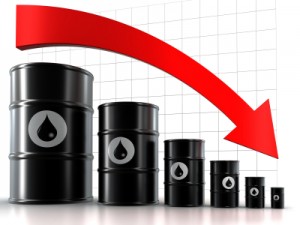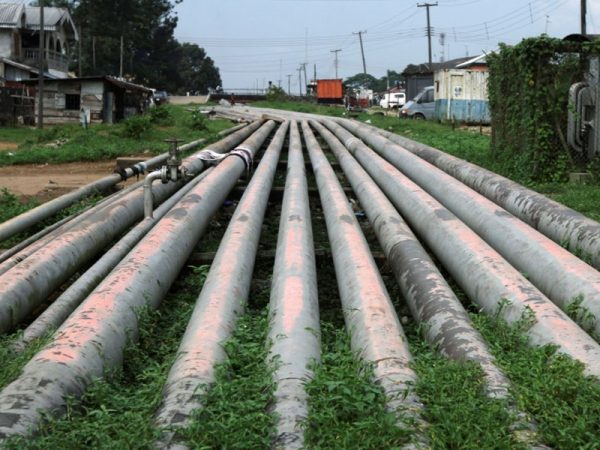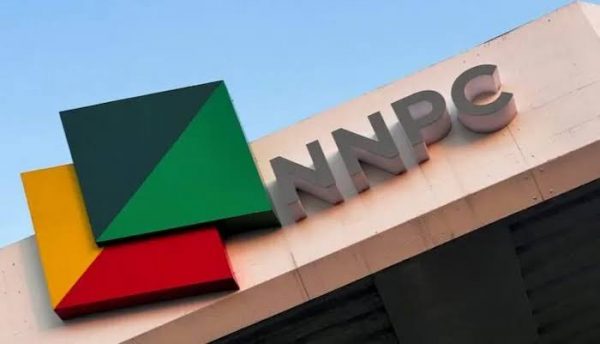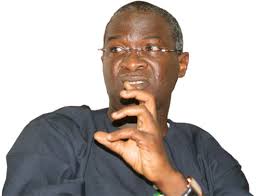Nigeria: Again, Crude Oil Price Drops Below Budget Benchmark

For the third time, the price of crude oil has dropped below the Federal Government’s benchmark for 2015 budget, signaling another possible downward review.
Nigeria has changed its benchmark twice in the last few weeks, from $78 to $73 and lately to $65.
The price of Organisation of Petroleum Exporting Countries (OPEC) basket of 12 crudes, including Nigeria’s Bonny Light stood at $62.33 a barrel last week, compared with $63.78 it recorded the previously.
Besides, OPEC in its monthly report released last week, cut the forecast for crude oil production in 2015 to the lowest in 12 years amid surging U.S. shale supplies and reduced estimates for global consumption.
The price of oil, which accounts for more than 70 per cent of government revenue and 95 per cent of foreign-exchange income, has fallen by 37 per cent this year.
Experts believed that the price of crude oil would still fall to $50 a barrel over the coming months as market forces shake out the weakest producers, hence the need to diversify the economy.
The oil cartel said in the report that in nominal terms, the price of the OPEC Reference Basket (ORB) declined by a monthly average of $9.49, or 11.2 per cent, from $85.06pb in October to $75.57/b in November. “In real terms, after accounting for inflation and currency fluctuations, the ORB fell by 9.4 per cent, or $5.03, to $48.16/b from $53.19/b (base June 2001=100)”.
The cartel reduced its projection for 2015 by about 300,000 barrels a day, to 28.9 million a day.
It forecast demand for the group’s oil will drop to 28.92 million barrels per day (bpd) in 2015, down 280,000 bpd from its previous expectation and over 1 million bpd less than it is currently producing.
“Should the current fall in crude prices continue over a longer period, it will impact the non-OPEC supply forecast for 2015, especially anticipated growth in tight crude,” OPEC’s report said, using another term for shale oil”.
OPEC output fell by 390,000 bpd from October, largely because of unrest in Libya and smaller reductions in Saudi Arabia and Kuwait.
It stated: “Total OPEC crude oil production dropped in November to average 30.05mb/d, according to secondary sources, down by 0.39mb/d from the previous month. Production from, Iraq increased, while crude oil output mainly in Libya, Saudi Arabia and Kuwait fell. According to secondary sources, OPEC crude oil production, not including Iraq, stood at 26.69 mbpd in November, down by 0.44 mbpd over the previous month”.
Reacting to this development, the Director, Centre for Petroleum, Energy Economics and Law, Prof. Adeola Adenikinju, said that there is need for the country to reset and re-balance the economy.
Adenikinju stated: “The current challenges with oil prices also have their own opportunities. In the short term, we will all pay the price for lack of fiscal discipline and wastes. For well over a decade we have benefitted from oil boom as oil prices have been on an upward trajectory. Actual oil prices have consistently been above the budgeted price. We should have saved enough to cushion the effects of current slide in oil price. Hence, ordinarily we should not be feeling the impact of the volatility almost instantaneously now on our economy.
“There should have been some decent lag for the effects of fall in oil prices to be transmitted to the economy. But we have been largely prodigal and wasteful in my view.
“However, the lesson now is for us to find ways to diversify our revenue base. This has been the official mantra for a long time. But with the current reality in the global oil market, we must start to ‘walk the talk’. “The non-oil sector that has dominated the structure of the GDP should now also contribute similar proportion to revenue base of the country. It is time to locally transform our crude oil and natural gas by adding values to create products like LPG, fertilisers, electricity, petrochemical products, plastics products, among others. This will create a lot of jobs for the economy and boost the integration of oil and gas sector with the rest of the economy.
“We are not exactly sure whether the current trend in oil price is a new long term trend or simply a short term volatility around the long term trend of the past. Whatever, it turns out to be, it is a message for us to reset and rebalance our economy”.







